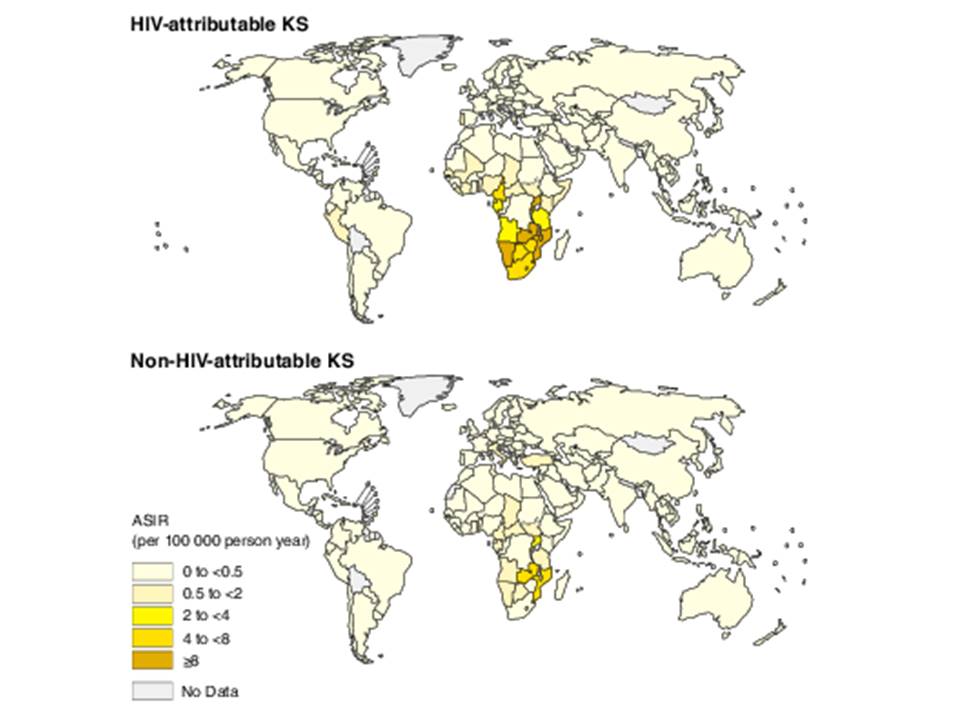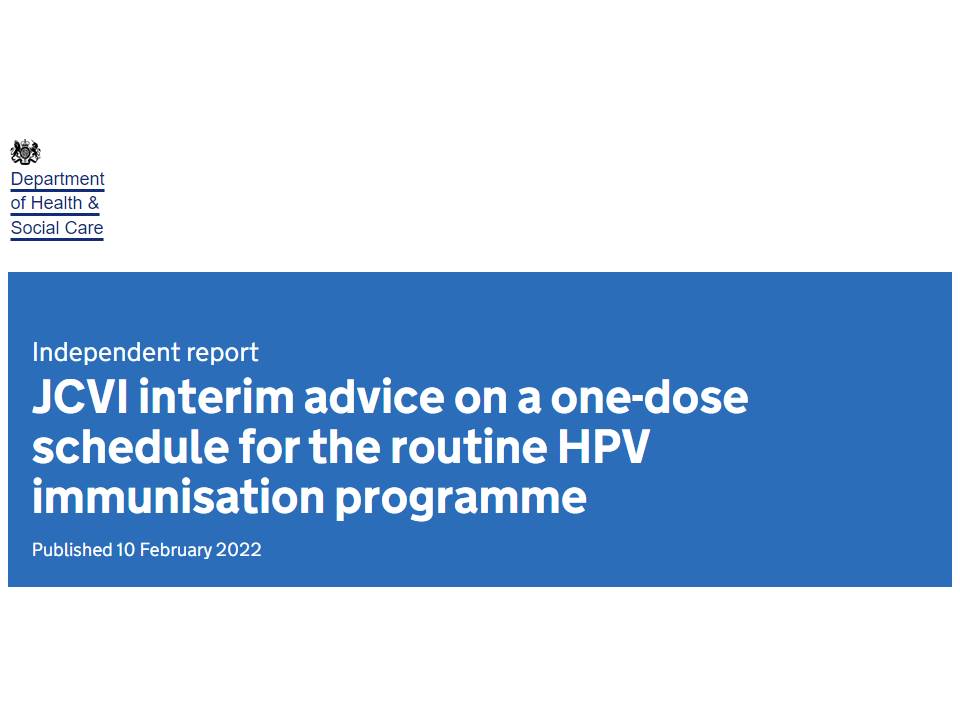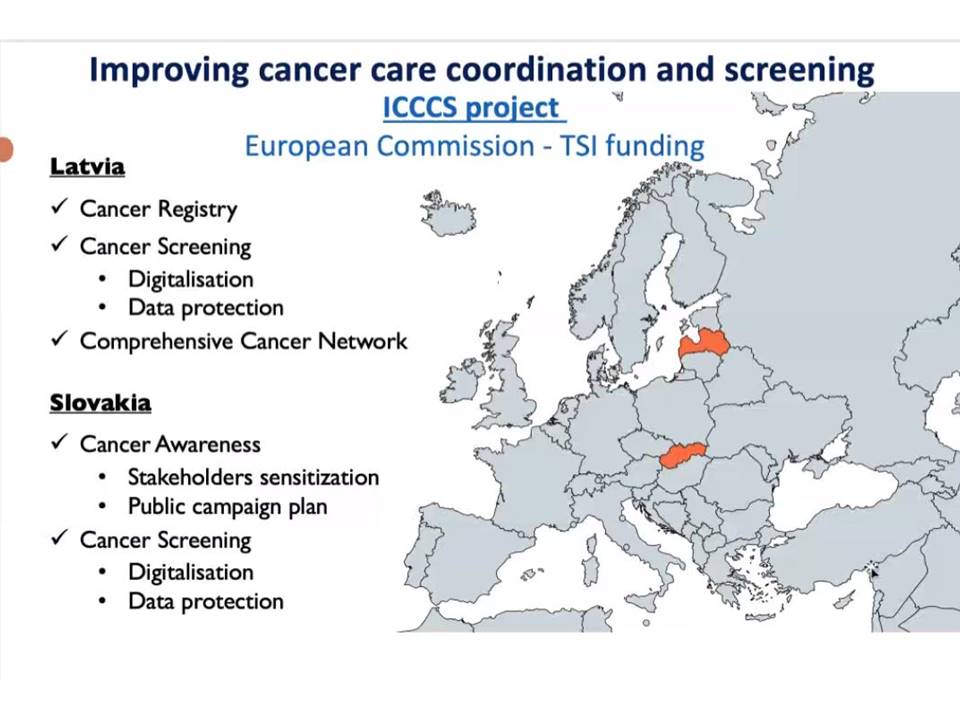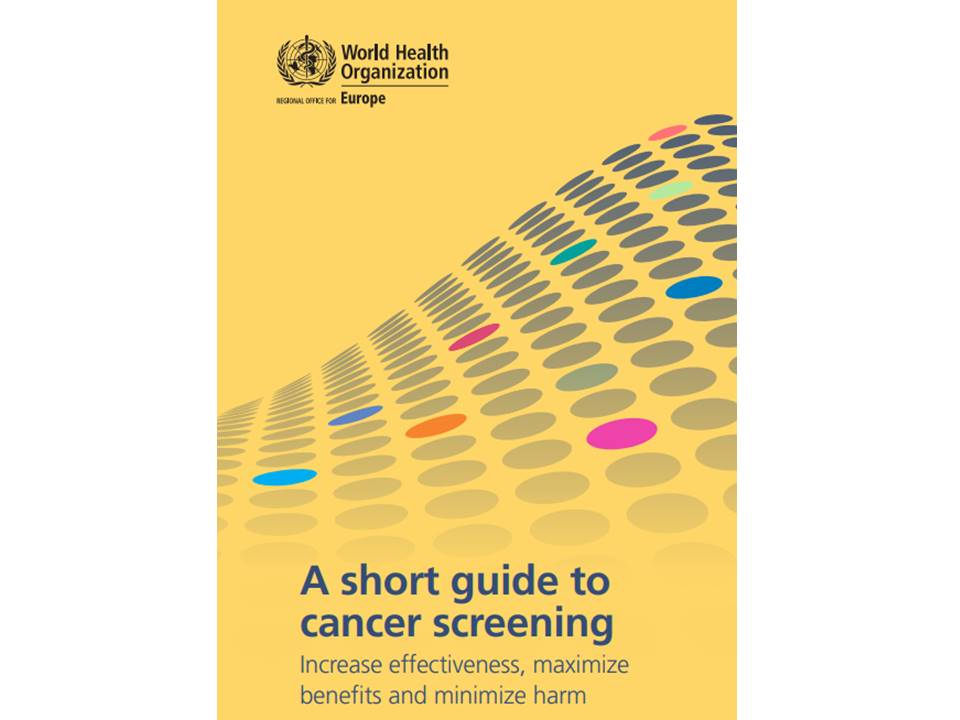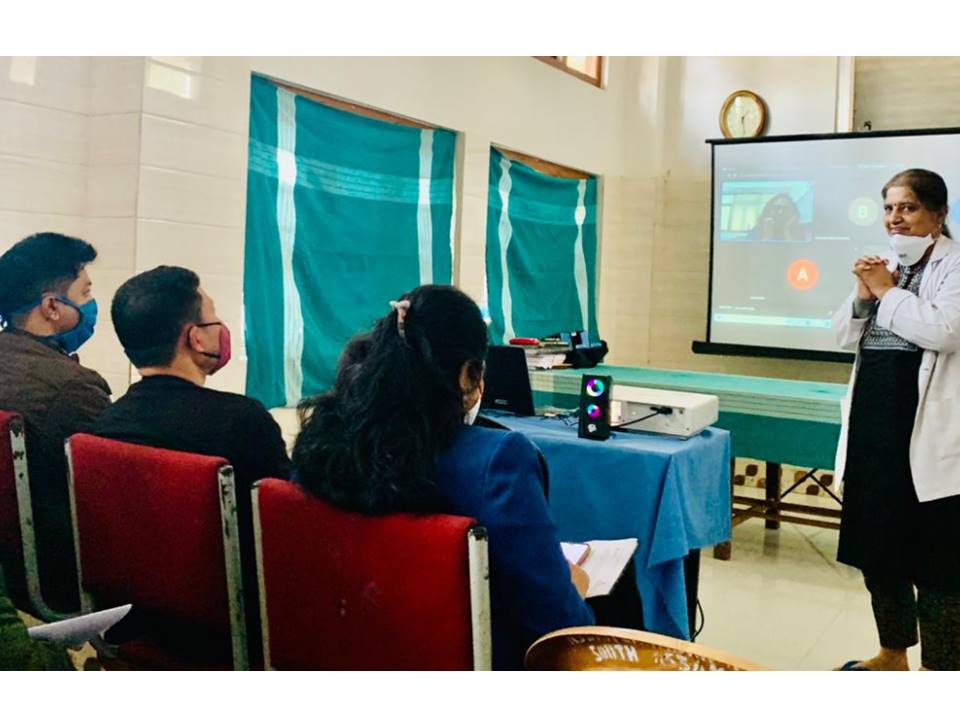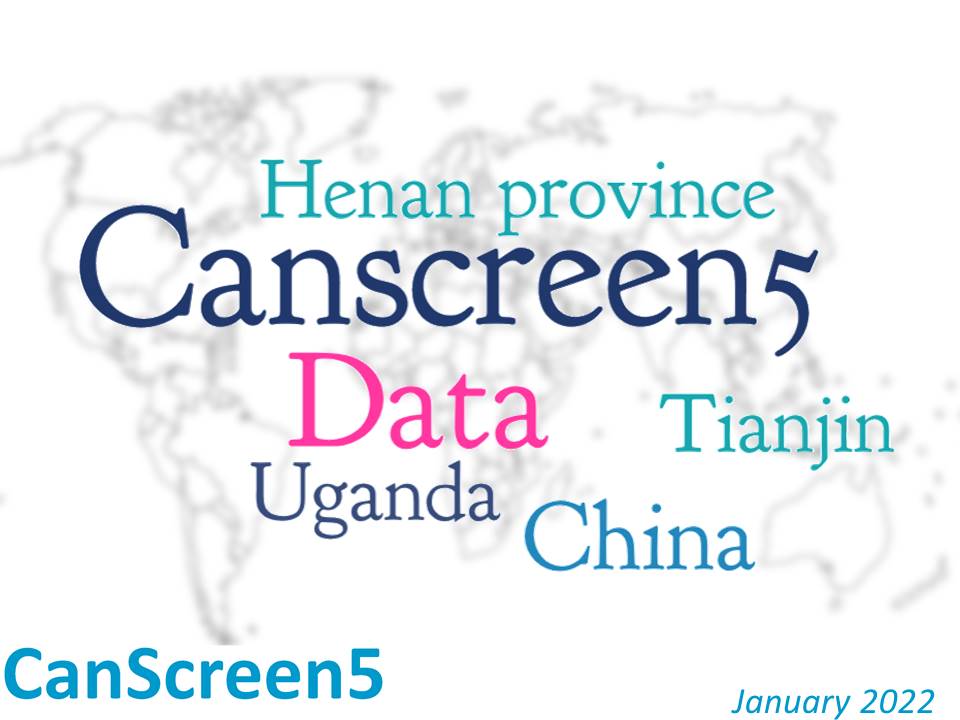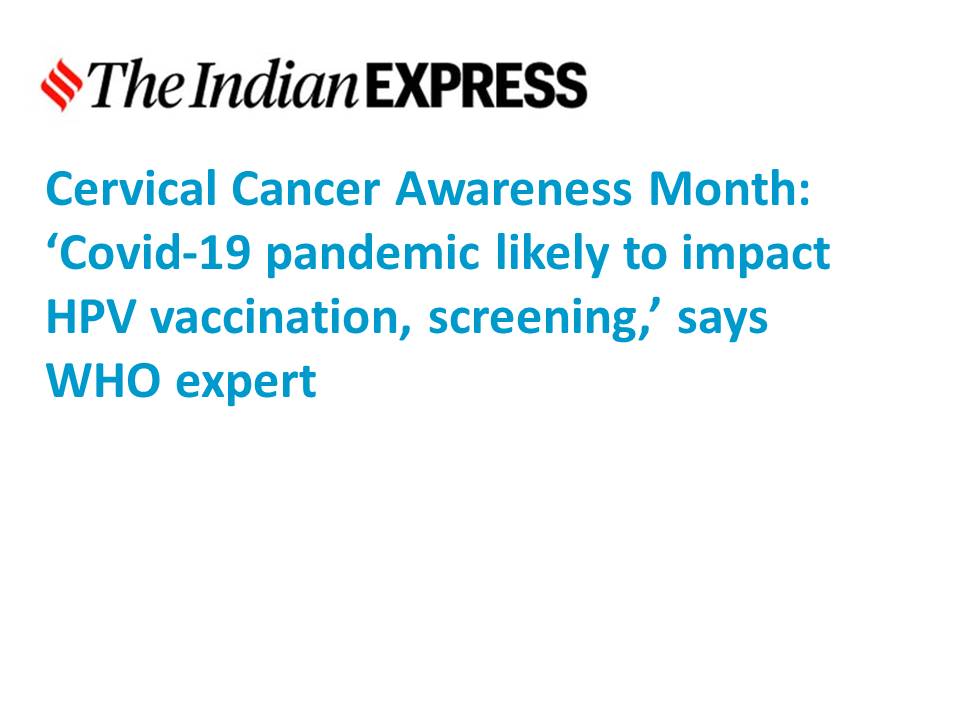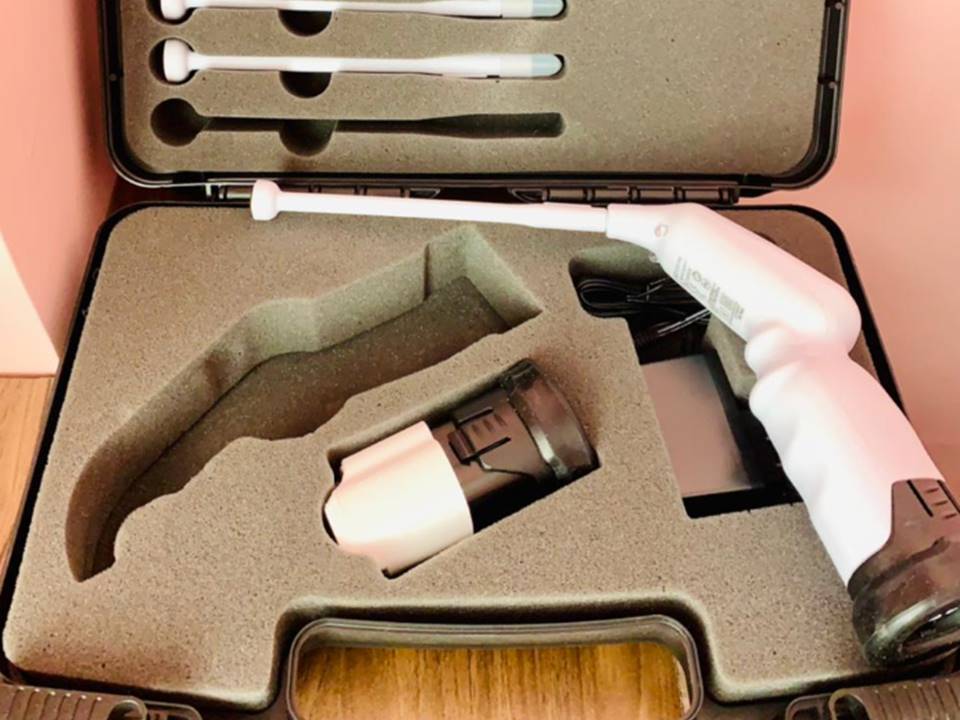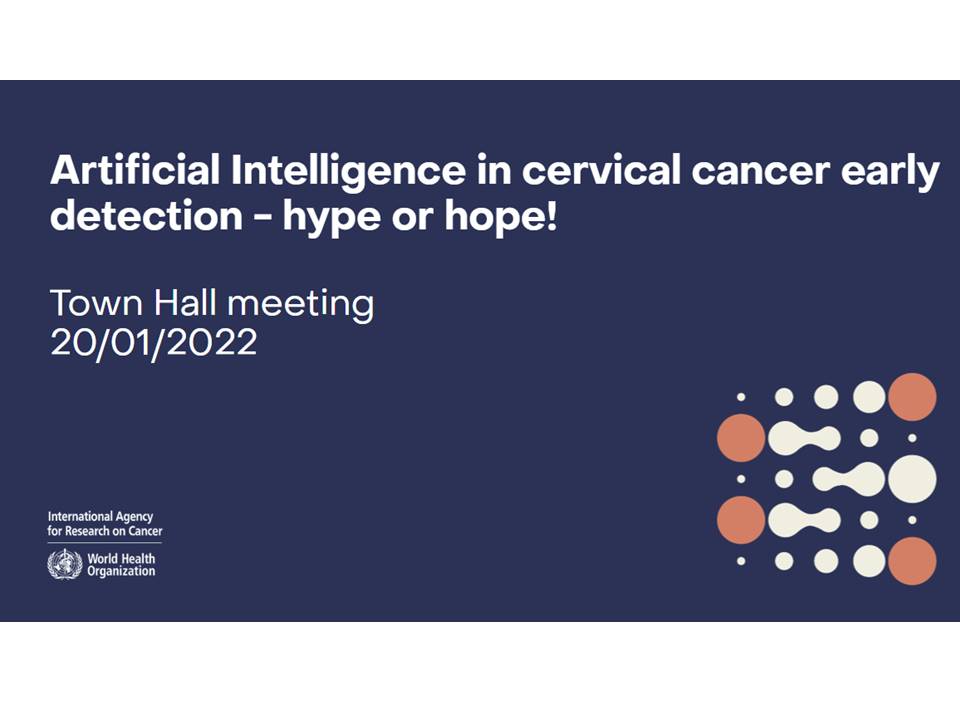Home / About the group / Visitors and news
Visitors and news
New publication: Burden of Kaposi sarcoma according to HIV status: A systematic review and global analysis25/02/2022This is the first systematic effort to characterize the burden of Kaposi sarcoma (KS) according to HIV status published in the International journal of Cancer, which estimated that approximately three-quarters of global KS cases are HIV-attributable, even in the era of cART. It illustrates how existing geographical disparities in KS burden have been further exaggerated by the HIV/AIDS epidemic, with ~60% of global non-HIV-attributable KS and ~80% of HIV-attributable KS cases in 2020 occurring in sub-Saharan Africa alone. View the article. |
IARC research informs the latest advice from UK JCVI to reduce the number of doses of HPV vaccine recommended for girls21/02/2022The United Kingdom Joint Committee on Vaccination and Immunisation (JCVI) has issued interim advice to reduce the number of doses of vaccine against human papillomavirus (HPV) from two to one for girls younger than 15 years. This new recommendation is based largely on research conducted by scientists from the International Agency for Research on Cancer (IARC) over more than a decade. Read the new JCVI interim advice and read our last publication. |
Internal Seminar: Improving cancer care coordination and screening in Latvia and Slovakia04/02/2022On Friday 4 February, Dr Andre Carvalho presented a new project, funded by the European Commission, which aims to improve cancer care coordination and screening in Latvia and Slovakia. Recommendations will be provided to countries to improve the effectiveness of cancer registration and population-based cancer screening programme. Recommendations will be also made to improve the current cancer screening information system and programme monitoring, and increase the awareness of the scope and benefit of cancer screening. |
New publication: A short guide to cancer screening. Increase effectiveness, maximize benefits and minimize harm02/02/2022This short guide published by the WHO Regional Office for Europe is designed to be a quick reference that contains the important concepts about cancer screening. This guide will help policymakers get to grips with the complexities, evidence and principles around cancer screening, seeking to increase effectiveness of screening practices by maximizing benefits and minimizing harms. View the publication. |
Training: Training for Pathology Laboratory Technicians regarding specimen handling and processing of breast core biopsy and Fine needle Aspiration Cytology with special emphasis on cell block preparation and immunocytochemistry31/01/2022 – 02/02/2022This course was organized in collaboration with Cachar Cancer Hospital and research centre, to improve skills of the 16 staffs involved in the new IARC project, Accelerating Breast Cancer early DEtection in India (ABCDE-India). This training focussed in breast specimen handling and staining for core-biopsy and cytology, to learn to prepare, process and stain the FNAC sample appropriately, to learn to prepare cell block from aspirated contents from breast lesion and improve their skills in preparing immunohistochemistry (IHC) slides from tissue blocks and immunocytochemistry slides from cell blocks. Training course was a mixed of virtual and face to face sessions. |
New release (January) of the CanScreen5 platform with new country data31/01/2022The CanScreen5 IARC Secretariat, following support of country collaborators and validation by our scientific committee, is happy to announce the availability on the CanScreen5 platform of the following country factsheets: China (Henan province and Tianjin data), and Uganda.
Visit the CanScreen5 website to explore characteristics and performance of cancer screening programmes across the globe in more than 69 countries. |
In the press: Cervical Cancer Awareness Month: ‘Covid-19 pandemic likely to impact HPV vaccination, screening,’ says WHO expert31/01/2022January is observed as cervical cancer awareness month. Dr R Sankarnarayanan, Senior Scientific Advisor at WHO's International Agency for Research on Cancer (IARC) speaks to The Indian Express on why 90% of cervical cancer deaths occur in low/middle-income nations and how it can be avoided. View the article. |
Video: Demonstrating a new method to prevent cervical cancer in Zambia25/01/2022To mark Cervical Cancer Awareness Month, the IARC is highlighting research projects to tackle the global burden of this cancer type. Scientists from IARC have been working for more than 5 years with Professor Groesbeck Parham and his team in Zambia to develop and demonstrate a revolutionary new method to prevent cervical cancer. This new method uses a handheld battery-operated device to destroy precancerous cells before they have a chance to develop into cancer. View the video and the IARC news. |
Seminar: Artificial Intelligence in cervical cancer early detection - hope or hype!20/01/2022Within the frame work of the IARC weekly town hall meeting, members of our team presented a special session for the cervical cancer awareness month about the use of artificial intelligence in cervical cancer early detection. The following topics were presented: Understanding artificial intelligence by Dr Partha Basu, >IARC study evaluating Automated visual examination (AVE) of cervix by Mr Eric Lucas, Spectroscopic detection of HPV in urine and AI by Dr Walter Prendiville and using artificial intelligence (Chatbot) to improve women's participation to cervical cancer screening programme by Dr Farida Selmouni. |
Internal Seminar: Treatment success rate after thermal ablation of cervix in screen and treat setting in Zambia stratified by HIV status14/01/2022On Friday 14 January, Dr Richard Muwonge presented the new analyzed data from the Randomized controlled trial (RCT) of the Liger Thermal Coagulator versus cryocautery and versus large loop excision of the transformation zone (LLETZ) to prevent cervical neoplasia in VIA-positive women in LMICs, Zambia. This data analysis will focus on the treatment success rate after thermal ablation of cervix in screen and treat setting in Zambia stratified by HIV status. Learn more about the Randomized controlled trial (RCT) of the Liger Thermal Coagulator versus cryocautery and versus large loop excision of the transformation zone (LLETZ) to prevent cervical neoplasia in VIA-positive women in LMICs (the DELTA study) project. |




